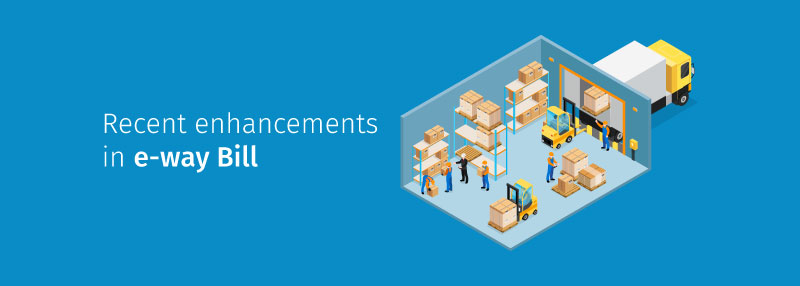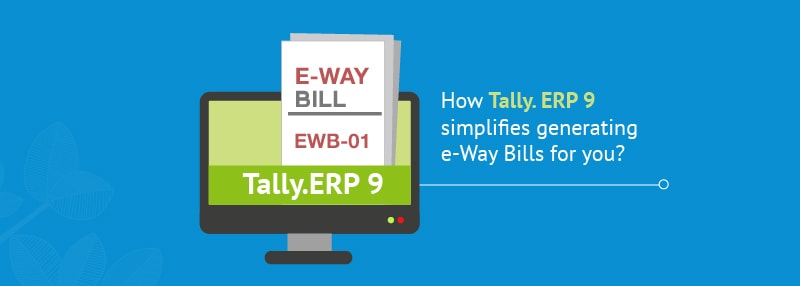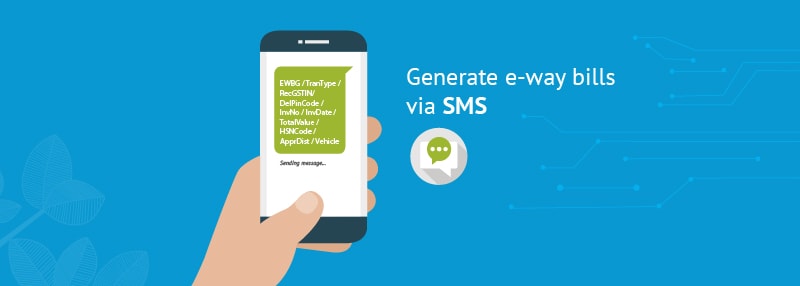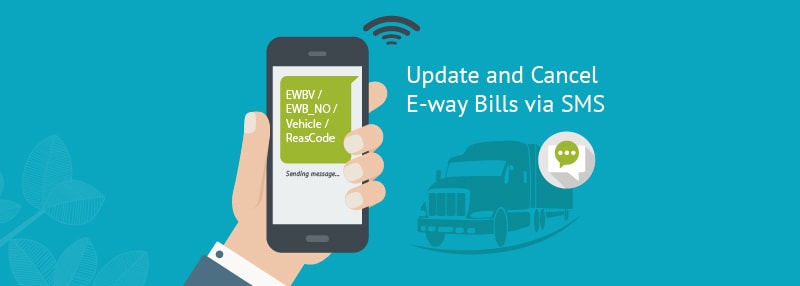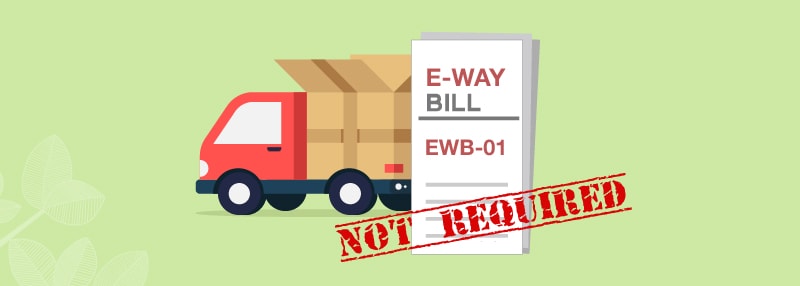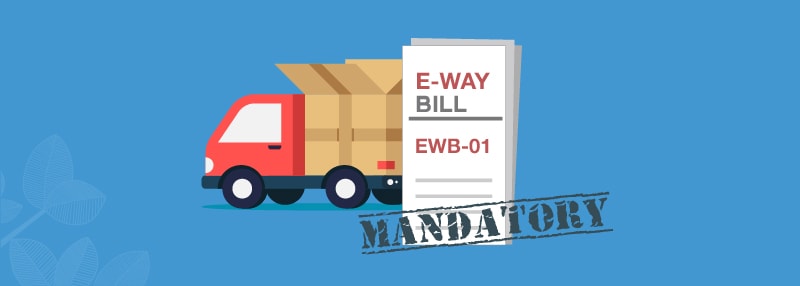The e-way bill is one of the key areas crucial for the successful implementation and adaption of GST. Therefore, it is no surprise that the government and the GST Council strives to keep making corrections to the e-way bill experience to make it more seamless as the days go by. About a month back, certain enhancements in the e-way bill were made to help businesses and transporters generate the e-way bill with ease.
The enhancements are largely as follows:
• Auto-calculation of distance based on PIN Codes
• Knowing the distance between two PIN codes
• Blocking the generation of multiple e-way bills on one invoice / document
• Extension of e-way bill in case the consignment is in transit / movement
• Report on list of e-way bills about to expire
Auto-calculation of distance based on PIN codes
First, the e-way bill system has been enhanced with auto-calculation of distance between the source and destination, based on the PIN codes. The system will now calculate and display the estimated motorable distance between the supplier and recipient addresses.
Certain points to note here:
- The user will still be allowed to enter the actual distance as per the movement of goods, but, it will be restricted to up to 10% more than the auto-calculated distance displayed. For e.g., if the system has displayed the distance between Place A and Place B, based on the PIN codes, as 50 KMs, then the user can enter the actual distance covered up to 55KMs (which is 50 KMs + 5 KMs (i.e. 10% of 50))
- In case the PIN code of both source and destination are the same, the user will be allowed to enter the distance up to a maximum of 100 KMs
- If the PIN Code entered is incorrect, the system would alert the user with the message “INVALID PIN CODEâ€. He can continue entering the distance, but such e-waybills will be flagged for review by the department
Knowing the distance between two PIN codes
Another alternative for the business or transporter to know the distance between source and destination is to follow the steps below:
- Login to the e-way bill portal homepage – http://ewaybillgst.gov.in
- Place the cursor on the “Search†tab to view the various options available and select “PIN to PIN Distanceâ€
- The “PIN to PIN Distance†screen will appear where the user needs to enter “Dispatch From†and “Ship To†PIN codes to show the approximate distance between the two locations
- The system will show the approximate distance. The calculation of the distance is based on data from various electronic sources, and employs various attributes, such as – road class, direction of travel, average speed, traffic data etc. These attributes are picked up from traffic that is on National highways, state highways, expressways, district highways as well as main roads inside the cities. A proprietary logic is then used for approximating the distance between two postal PIN codes.
Blocking the generation of multiple e-way bills on one Invoice / Document
Based on the representation received from various stakeholders, the government has decided not to permit generation of multiple e-way bills based on one invoice, by any party, be it consignor, consignee or transporter. Which means, if the e-way bill is generated once with a particular invoice number, then none of the parties can generate the e-way bill with the same invoice number. Even if someone tries to generate another e-way bill using the same document number, the system will not allow the same and display an error message. In short, “One Invoice, One E-way bill†policy will be followed.
Extension of e-way bill in case the consignment is in Transit / Movement
Many transporters had proposed to incorporate the provision to extend the e-way bill, when the goods are in transit / movement. To do so, they need to follow the steps below:
- Login to the e-way bill portal homepage – http://ewaybillgst.gov.in
- Navigate to “E-way Bill Module†> “Extend Validity†> Enter the e-way bill number to fill the extension validity form
- Choose “Yes†for extension for e-way bill, upon which transportation details will appear in Part B of the form
- Select the position of the consignment as “In Transit†/ “In Movementâ€
- On selection of “In Movement†the system will prompt the user to select the “Mode†and “Vehicle Detailsâ€
- On selection of “In Transitâ€, the user needs to select the “Transit Type†i.e. “On Roadâ€, “Warehouse†or “Others†– followed by the address of the transit place
- In both the scenarios above, the destination PIN will be considered from the Part A of the e-way bill for calculation of the distance for movement and validity date.
Report on list of e-way bills about to expire
Businesses or transporters can now view the list of e-way bills about to expire in a period of 4 days, and thus keep track of expiry dates for each of the consignments generated. For doing this, the user needs to follow the steps below:
User can login to the e-Way Bill portal (https://ewaybillgst.gov.in/) and navigate through the menu as illustrated below to reach the list (Figure-11).
- Login to the e-way bill portal homepage – http://ewaybillgst.gov.in
- Navigate to “Reports†> “My EWB Reports†> “EWB about to Expireâ€
- The report will be populated. The user can utilize the report to analyse the data and ensure that that the goods reach the destination within validity time
Watch this space for more such updates on the e-way bill.
